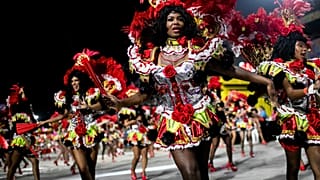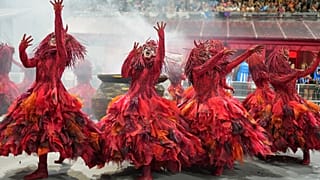Brazil
It all started with nifty leg movements, strong steps backwards and forwards, paced to Brazilian funk music.
Then it adopted moves from break dancing, samba, capoeira, frevo — whatever was around.
The passinho, a dance style created in the 2000s by kids in Rio de Janeiro’s favelas, in March was declared an “intangible cultural heritage” by legislators in the state of Rio, bringing recognition to a cultural expression born in the sprawling working-class neighborhoods.
The creators of passinho are young kids with plenty of flexibility — and no joint problems.
They started trying out new moves at home and then showing them off at funk parties in their communities and, crucially, sharing them on the internet.
The style started spreading to other favelas and became a means for youths to move seamlessly between communities controlled by rival drug gangs.
It offered young men from favelas a new way out, besides falling into a life of crime or the all-too-common pipe dream of becoming a soccer star, like Nayara Costa da Silva, a dancer and director from the group Passinho Carioca in the Penha complex of favelas.
“I'm a young woman who was saved through funk, through “passinho,” said da Silva, after her presentation for kids from Rio de Janeiro municipal schools.
"I come from a family where everyone has been involved in drug trafficking, which is our reality in the favelas, unfortunately," she added.
Passinho was declared state heritage by Rio’s legislative assembly through a law proposed by Rio state legislator Veronica Lima.













02:00
China celebrates Spring Festival with lion dances at Great Wall of China
01:17
U2 slams Putin, ICE in defiant new EP 'Days of Ash'
01:36
Chad: French tourist's death "a tragic accident" according to another traveller
01:56
Benin's lovers less row-mantic as apps replace waterway rendezvous
01:00
Japan: Akiba Festival draws crowds despite winter cold
01:00
Vienna Opera Ball dazzles 5,500 guests at Austria’s grand gala